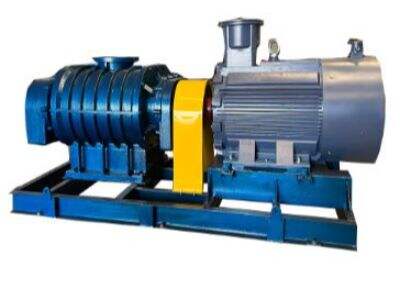ລາຍເນື້ອງານ:• ອາຫານແມ່ນການສຳເນີດທັງໝົດຂອງການເຮັດບໍລິສັດ — ຜູ້ສົ່ງໄປ, ສົ່ງເສີມ, ແລະເຮັດວຽກໃນນ້ຳ. ນີ້ແມ່ນວິທີທີ່ພວກເຮົາໄດ້ຮັບອາຫານຫຼາຍ, ແລະມັນສາມາດເປັນຄົນທີ່ດີແມ່ນໂລກ. ຜູ້ສົ່ງໄປແລະຮູບແບບອື່ນໆຂອງການເຮັດບໍລິສັດຊ່ວຍໃຫ້ລົບລົ້ມຈຳນວນຂອງປາທີ່ຖືກເຊົ່າຈາກທະເລຂອງພວກເຮົາ. ທີ່ໜ້າກັບຄືປາຫຼາຍໄດ້ຮັບອັນຕະລາຍຢ່າງເສີມແຂ່ໃນທະເລ, ເປັນສິ່ງທີ່ດີເປັນພິเศດເພາະມັນຊ່ວຍໃຫ້ກັບສາກົນຂອງພວກເຮົາໃຫ້ສຸກສານແລະຄົງທີ່ສຳລັບສັດທີ່ເຊັນດັ່ງ ດອນ, ຕົ້ນ, ແລະຫຼາຍອື່ນໆ.
ສຳລັບພັນເພື່ອງທີ່ພວກເຮົາສາມາດເປົ້າໄດ້, ພວກເຮົາສາມາດເປົ້າຫຼາຍຜ່າງໂດຍວິທີການແຂວນແຄ້ວ. ອີງຕາມຫລາຍຄົນ, ມີສິ່ງທີ່ດີຂອງຫລາຍຜ່າງແມ່ນວ່າມັນຊ່ວຍໃຫ້ການຮັບກັບເຄື່ອງໝາຍເຄື (CO2) ທີ່ເປັນເຫດຜົນໃຫ້ການປ່ຽນແປງຂອງອາກາດ. ດັ່ງນັ້ນ, ໃນບາງທີ່, ຖ້າພວກເຮົາເປົ້າແລະເກັບຫລາຍຜ່າງ, ພວກເຮົາກໍ່ຈະຊ່ວຍຫຼຸດການມີຜົນກະທົບຕໍ່ການມັນເຖິງ. ນັກເປົ້າໄດ້ເປົ້າຫຼາຍຜ່າງທີ່ຊ່ວຍລ້າງນ້ຳທີ່ມີຄວາມເສຍหายໃນບາງທີ່. ຫຼາຍຜ່າງເຫຼົ່ານີ້ຈະເອົາອອກສິ່ງທີ່ມີຄວາມເສຍໄວ, ເຊິ່ງສາມາດເຮັດໃຫ້ແມ່ນ້ຳແລະແມ່ນ້ຳມີສุຂະພາບດີກວ່າ. ຖ້າພວກເຮົາໃຊ້ການແຂວນແຄ້ວຢ່າງຮູ້ຈັກແລະມີຄວາມຮູ້, ພວກເຮົາສາມາດຮັກສາແວງວິວໄດ້, ແຕ່ກໍ່ຕ້ອງມີການສະຫນັບສະຫນູນໃນການສະໜອງອາຫານທີ່ພຽງພ໋ອງໃຫ້ທຸກຄົນ.

ການເປົ້າຫຼາຍທີ່ຖືກຕ້ອງ
ຫຼາຍແມ່ນສັດທີ່ເປັນຜົນປະສົມທີ່ຕ້ອງເປັນການເລົ້າໃຫ້ມີຄວາມສັງຄົມແລະການດູແລ, ເຊັ່ນเดີຍກັບສິ່ງອື່. ມັນມີການໃຊ້ ເຄື່ອງເຫຼືອງອຸ່ນສຳລັບການເຫຼືອງສັດ ໂດຍ JYSR ທີ່ຮັກສາເປົ້າແລະສຸຂະພາບຂອງສັດທັງໝົດ ເພື່ອໃຫ້ມີຄວາມປ້ອມພຽງພໍໃນອະນາຄົດ. ຖ້າພວກເຮົາເຮັດການເກັບໄປຜິດ, ມັນສາມາດເຮັດໃຫ້ເປັນbahayaຕໍ່ສິ່ງແວດລ້ອມແລະເອົາປາໄປຈາກຊົນລົ້ມ.
ວິທີ້ໜຶ່ງທີ່ຈະແກ້ໄຂບັນຫານີ້– ປ່ຽນຈາກການກິນເນື້ອປາ ຫຼື ກິນເນື້ອສັດ– ແມ່ນໂດຍບໍ່ອີ່ນປາໃຫ້ປາອື່ນ. ອີ່ນປາອື່ນເປັນການເຮັດທີ່ເສຍຄ່າສູງຕໍ່ສິ່ງແວດລ້ອມ ແລະ ບໍ່ສຸກສາມາດເຮັດໃຫ້ລະບົບປາໃນທະເລສົງສັນ. ການໃຊ້ຫມູ່ພັນ-ເຫຼືອງເປັນສ່ວນປະກອບໃນອາຫານສາມາດຫຼຸດຄວາມເສຍຄ່າຕໍ່ການประมงທຳມະດາໄດ້ຫຼາຍ.
ແນວຄິດອື່ນທີ່ເປັນເรັກສາແມ່ນໃນລະບົບທີ່ມີຢູ່ແລ້ວ ເຊິ່ງຮັກສາແລະລ້ານນ້ຳທີ່ໃຊ້ເພື່ອປະຕິບັດໜ້າທີ່ຕ່າງໆ. ນ້ຳຍັງຖືກໃຊ້ຄືນ ຕໍ່ຫຼັງຈາກບໍ່ດຳເນີນການດຳເນີນນ້ຳໃໝ່ຈາກເຂົາແລະແມ່ນ້ຳ. ມີປະໂຫຍດໃນການນີ້ ເຊິ່ງສາມາດບັນທຶກນ້ຳທີ່ມີຄ່າ ແລະ ໃນເວລາเดີມກໍຫຼຸດການມັນຍໍ້າຕໍ່ສິ່ງແວດລ້ອມ (ໂດຍກັບຄືນບັນຫາທີ່ເກັບຂີ້ເຫຼືອງ).
Aquatic Systems Care
ແມ່ນຄຳສັ່ງທີ່ຍາກໃຫ້ພວກເຮົາບໍ່ໄດ້ປະຕູລາຍລະບົບເຊື່ອຂອງພວກເຮົາ. ກາຍເປັນທີ່ສົ່ງຜົນໃຫ້ສິ່ງມີຊີວິດທີ່ຢູ່ໃນນ້ຳ, ລັກ, ແລະໂຄສະມຸດ. ຕົວຢ່າງເຊັ່ນພວກເຮົາ, ມັນສາມາດຖືກສິ່ງເສຍທີ່ມີຜົນກະທົບຈາກການປ້ອມແຫຼືການເອົາສັດນ້ຳເກິນໄປ. ຖ້າພວກເຮົາເຮັດການເອົາສັດນ້ຳໂດຍມີຄວາມຮູ້ຄວາມເຂົ້າໃຈ, ນັ້ນແມ່ນຄວາມສຳເລັດທີ່ດີເພາະວ່າມັນສາມາດຊ່ວຍໃຫ້ສິ່ງເຫຼົ້າເຫຼົ້າເຫຼົ້າເຫຼົ້າເປັນໄປ. roots blower .
ສ່ວນໜຶ່ງຂອງການນີ້ແມ່ນການເລືອກສັດນ້ຳທີ່ມາຈາກເຂດທີ່ມັນຄົງທີ່. ບໍ່ເທົ່າໃດ, ສັດນ້ຳເຫຼົ່ານີ້ມີຄວາມສົມບູນກັບສິ່ງແວດລ໌ທີ່ມັນຢູ່, ແລະຈະບໍ່ມີຜົນກະທົບຫຼາຍ. ນີ້ເຮັດໃຫ້ມັນມີຄວາມສັນຍາທີ່ຈະມີຊີວິດແລະເພີ່ມຂຶ້ນໃນປ່າ. ໂດຍການເພີ່ມພົບ, ຜູ້ເຮັດການສາມາດຜົນລົງສັດນ້ຳທີ່ມີສຸຂະພາບດີແລະມີຄວາມຕ້ອງການທີ່ຈະຕ້ອງການກັບເຊື້ອເຊື້ອທີ່ມີຄວາມຕ້ອງການ.
Fishing for the Future
ມັນຍັງຄົນຫຼາຍເປັນຊີວະການຂອງພວກເຂົາ, ກໍ່ເຂົາໃຈແຕ່ມັນກໍ່ສາມາດຮັບຜົນລົງທີ່ໄປສິ້ນແຫ່ງທະເລຖ້າບໍ່ເຮັດໃນທາງທີ່ຖືກຕ້ອງ. ຖ້າພວກເຮົາເປີດຢາມໃນທາງທີ່ຖືກຕ້ອງ, ມັນຈະເຫຼົ່າການເປີດຢາມໃຫ້ກາຍປະຈຳທີ່ມາຂຶ້ນ ກັບລະດັບສຸຂະພາບທີ່ດີຂອງສັດທະເລ. ພວກເຮົາຕ້ອງຄິດກ່ຽວກັບຜົນລົງຂອງສິ່ງທີ່ພວກເຮົາເຮັດມື້ນີ້ຕໍ່ທະເລອີກມື້.
ເພື່ອເຂົ້າຮ່ວມໃນເຫດການ, ຜູ້ເປີດຢາມສາມາດໃຊ້ອຸປະກອນເປີດຢາມທີ່ບໍ່ມີການເອົາສັດອື່ນ. ສັດເຫຼົ່ານີ້ສາມາດຖືກເອົາໂດຍບໍ່ຕ້ອງໃຈໃນເນັດເປີດຢາມໄດ້, ທີ່ສາມາດສິ້ນຫາຍປະຊາກອນຂອງພວກມັນໄດ້. ດ້ວຍການໃຊ້ອຸປະກອນເປີດຢາມທີ່ອອກແບບມາເພື່ອກັບການເອົາສັດອື່ນ, ສັດທັງໝົດສາມາດຖືກคุໆຄຸ້ມແລະສູງສຳລັບການສົ່ງສຳຫຼາຍໃນເຊື້ອພາບພວກເຮົາ.
ວິທີ້ອື່ນໆເພື່ອສະໜັບສະໜູນການເປີດຢາມທີ່ມີຄວາມรູ້ຄວາມຮູ້ແມ່ນໂດຍມີການກັບກົດຈຳນວນ. ການຕັ້ງຄວາມຈຳນວນແມ່ນເປັນການແນະນຳວ່າມີສັດເປີດຢາມຫຼາຍໃຫ້ພຽງພໍໃນທະເລ, ເພື່ອໃຫ້ມີພຽງພໍອາຫານໃຫ້ສັດອື່ນກິນ. ໃນການເຮັດແນວນີ້, ມັນສາມາດຊ່ວຍໃຫ້ປ້ອມການເປີດຢາມຫຼາຍ, ທີ່ສິ້ນຫາຍປະຊາກອນສັດເປີດຢາມຕໍ່.
ດີຕໍ່ພະຍາງຄົນແລະວຽກງານ
ການເຮັດສະໝຸດທີ່ຖືກຕ້ອງແລະການປິດຫຼາຍຂອງພວກເຮົາຈະໄດ້ຜົນປະໂຫຍດທັງສອງ: ທຳມະຊາດແລະຄວາມສົງຄາມຂອງພວກເຮົາກໍ່ຢູ່ໃນການນີ້ roots type blower ສັດນ້ຳທີ່ສຳຄັນ. ດັ່ງນັ້ນ ການເຮັດວຽກແຫ່ງນີ້ບໍ່ເທົ່າໃດທີ່ຈະຊ່ວຍຄົນທີ່ຢູ່ຕິດປະເທດທີ່ຕ້ອງກັບການລໍານ້ຳເພື່ອຊີວິດ. ການดູແລທຳມະຊາດຈະຊ່ວຍເສີມເສີງທຳມະຊາດທຳລາຍ.
ສຳລັບປະເທດທີ່ເຊົ່າກັນເຊັ່ນ ເດັນມາກ, ອາເມລິກາ / ບາງແຂວງ, ຫຼື Nor ໄວ ເຊິ່ງເຮັດສະໝຸດສາລົມແມ່ນສັງຄົມແລະມັນໄດ້ສ້າງວຽກຫຼາຍພັນຄົນເປັນພິเศດໃນເຂດທາງຫນ້າ. ວຽກແຫ່ງນີ້ສ້າງຄົນເຮືອນແລະສັງຄົມ. ພວກເຮົາກໍ່ເຫັນສະໜາຄາສັດນ້ຳໃນໂດຍລົບທີ່ສ້າງໃນອາເມລິກາທີ່ໄດ້ໃຊ້ເทັກນົອລົຈີສົມບູນເພື່ອບັນຫານ້ຳແລະລົບລົ້ມຜົນປະໂຫຍດທຳມະຊາດ.
ຖ້າພວກເຮົາສັງຄົມການເຮັດສະໝຸດແລະການປິດຫຼາຍທີ່ດີ, ນີ້ຈະບໍ່ເທົ່າໃດທີ່ຈະຊ່ວຍທຳມະຊາດໃຫ້ສຸກສານແຕ່ຍັງສະຫຼຸບຄວາມສົງຄາມໃຫ້ທຸກຄົນ. ຖ້າພວກເຮົາຮວບຮ່ວມ, ພວກເຮົາສາມາດບັນທຶກທະເລຂອງພວກເຮົາແລະສຸກສານໃຫ້ສັດທີ່ມີຊີວິດ - ເວົ້າໄປເຖິງພວກເຮົາ.

 EN
EN
 AR
AR
 CS
CS
 DA
DA
 NL
NL
 FR
FR
 DE
DE
 EL
EL
 HI
HI
 IT
IT
 JA
JA
 KO
KO
 PL
PL
 RU
RU
 ES
ES
 SV
SV
 TL
TL
 ID
ID
 SR
SR
 SK
SK
 UK
UK
 VI
VI
 SQ
SQ
 HU
HU
 TH
TH
 TR
TR
 AF
AF
 BE
BE
 EU
EU
 BN
BN
 BS
BS
 HMN
HMN
 LO
LO
 LA
LA
 NE
NE
 SO
SO
 MY
MY
 KK
KK
 UZ
UZ
 XH
XH